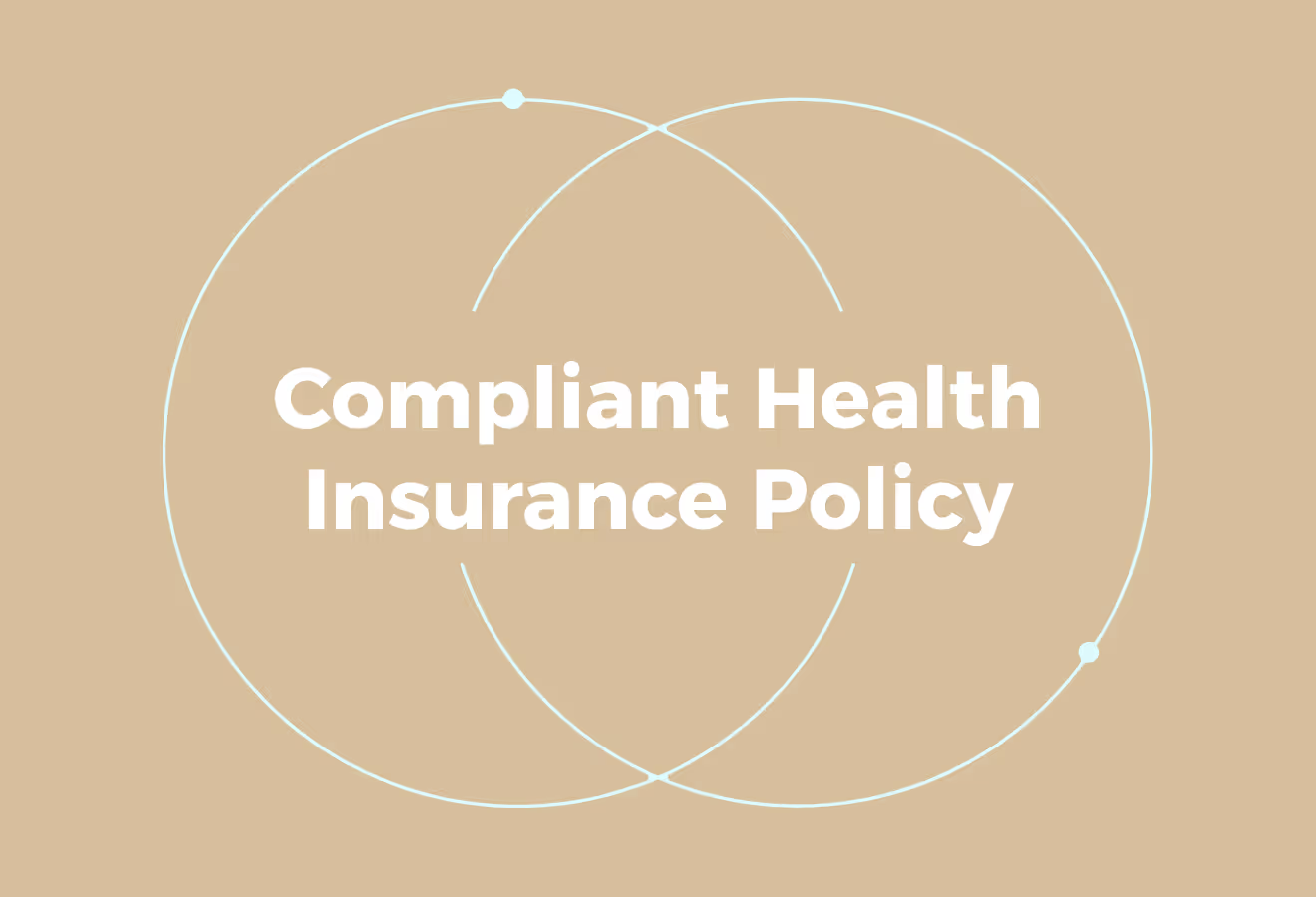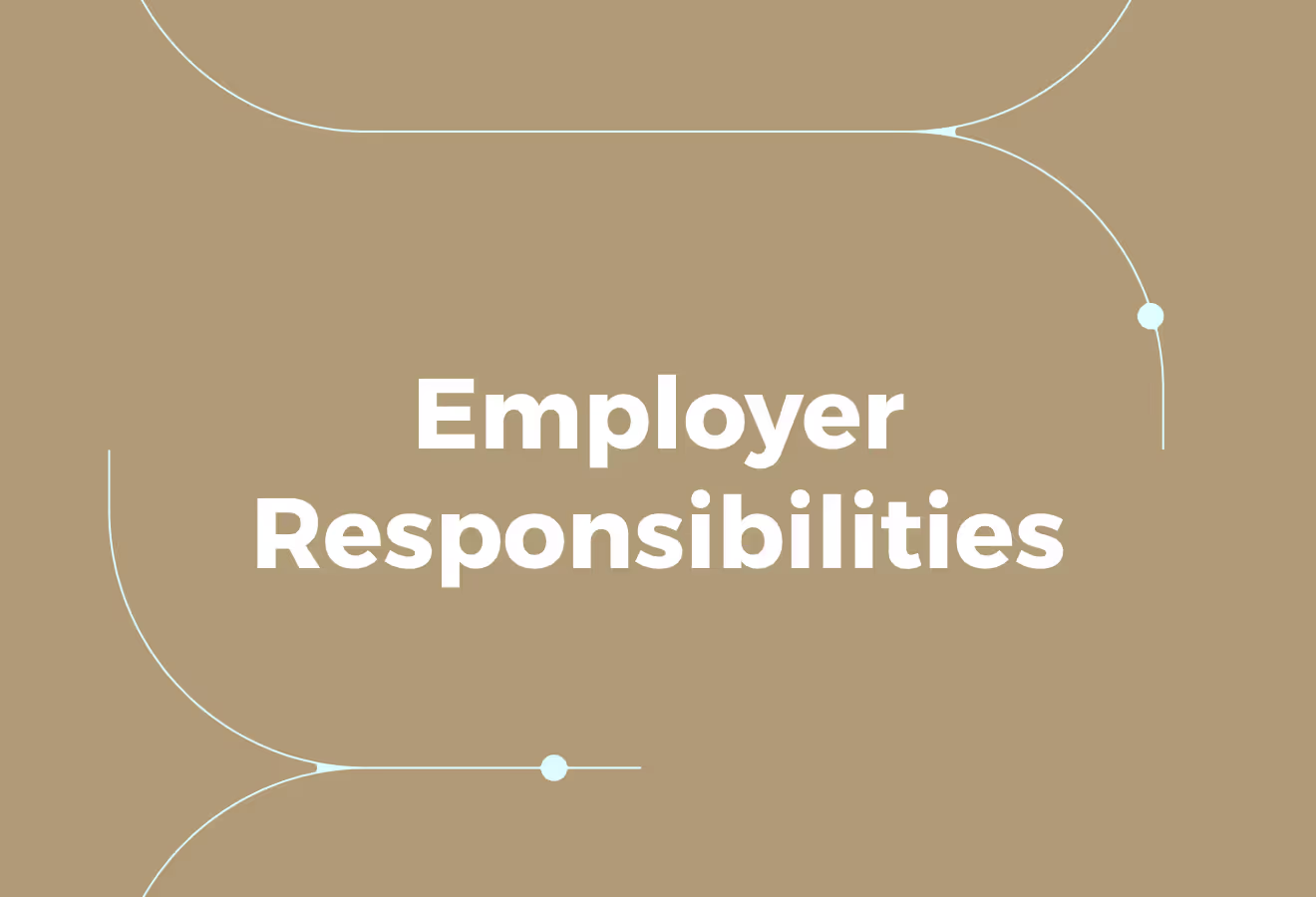Employer’s Guide to Health Insurance in Abu Dhabi

When hiring employees in Abu Dhabi, one of the key responsibilities for employers is ensuring that staff have access to health insurance coverage. Understanding local regulations and requirements helps businesses remain compliant while supporting the well-being of their workforce.
Cercli’s global HR system does not provide health insurance directly, but supports employers by helping them stay informed on what obligations exist when hiring in Abu Dhabi. The platform centralises HR processes, enabling employers to manage documentation and coordinate efficiently with the appropriate local providers where necessary.
The Legal Landscape of Health Insurance in Abu Dhabi

Abu Dhabi has played a leading role in shaping health insurance regulation in the UAE. Under Law No. (23) of 2005, the emirate became the first in the country to mandate health insurance for all residents.
The law, which came into effect on 1 June 2006, required employers to provide health cover for their employees and dependants, establishing a framework that influenced subsequent developments across the UAE.
Employer Responsibilities and Government Oversight in Abu Dhabi
The Department of Health Abu Dhabi (DOH), formerly known as the Health Authority of Abu Dhabi (HAAD), oversees health insurance regulations within the emirate, ensuring that policies meet required standards.
While DOH regulates the health insurance schemes, the Abu Dhabi Health Services Company (SEHA) manages government-owned healthcare facilities. Employers in Abu Dhabi are legally obligated to provide health cover for their workforce as well as dependants, typically including one spouse and up to three children under 18.
Expansion of Health Insurance Across the UAE
Effective 1 January 2025, the UAE extended mandatory employer-provided health insurance to all private sector employees and domestic workers across every emirate. This initiative builds on the existing systems already established in Abu Dhabi and Dubai, aiming to provide health cover for all employees across the country.
New Federal Requirements for Health Insurance Across the Northern Emirates
The Ministry of Human Resources and Emiratisation (MoHRE), in collaboration with the Ministry of Health and Prevention and other key authorities, has launched a basic health insurance package aimed at workers in:
- Sharjah
- Ajman
- Umm Al Quwain
- Ras Al Khaimah
- Fujairah
Under this new mandate, employers must provide medical insurance as a condition for issuing or renewing residency permits. Workers with permits issued before 1 January 2025 will only be required to comply when their permits come up for renewal.
Penalties for Non-Compliance
Failure to comply with health insurance obligations can result in significant consequences, including fines imposed on employers who do not provide the required coverage. Authorities may also reject visa or residency applications if proof of health insurance is not provided.
Additional business penalties may apply, such as restrictions on new work permits or other administrative actions by the authorities. These measures highlight the need to meet health insurance requirements as part of wider employment and immigration compliance.
Regulatory Oversight
The Department of Health Abu Dhabi (DOH) remains the central authority in:
- Regulating health insurance schemes
- Monitoring employer compliance
- Ensuring that residents have access to suitable healthcare cover
Its role complements that of federal entities like MoHRE, which are expanding similar standards nationwide.
Related Reading
What Does a Compliant Health Insurance Policy Include?

Law No. (23) of 2005 governs Abu Dhabi’s health insurance system, which requires that all residents have access to basic health cover. This law is supported by regulations that specify what compliant health insurance plans must include. Article 12 of the law outlines the medical services that must be included to give residents access to necessary care.
The Department of Health Abu Dhabi (DOH) oversees these requirements, which apply to all employer-provided health policies in the emirate.
Core Services Covered Under a Compliant Health Insurance Policy
A compliant policy includes the following services:
- General practitioners and specialist doctors deliver medical examinations, treatment, and primary care in clinics or medical centres.
- Laboratory tests and X-rays are required for diagnosis and treatment.
- Inpatient hospital care, including hospital stays and treatments.
- Regular dental and gum treatment, excluding orthodontic procedures and dentures.
- Medications prescribed by doctors are approved medicines.
- Accommodation costs for one escort in critical medical cases where patient support is needed.
The DOH, with approval from the Executive Council, may add or remove services from the list when necessary. This framework helps ensure that employees and their dependents in Abu Dhabi have access to essential health cover through a clearly defined system.
How Cercli Supports Health Insurance Compliance in Abu Dhabi
Cercli supports businesses in Abu Dhabi in obtaining health insurance that meets local compliance requirements. The platform helps manage the process of arranging health insurance and connects employers with licensed providers in the emirate.
Cercli also enables employers to manage staff health cover and remain aligned with Abu Dhabi’s regulatory requirements.
Employer Responsibilities: Who Must Be Covered?

In Abu Dhabi, employers are legally required to provide health insurance cover for all their employees and eligible dependents. This includes the employee’s spouse and up to three children under 18, as set out in the emirate’s health insurance law.
For individuals sponsored by someone other than their employer, such as dependants or domestic workers, the sponsor must arrange health cover from their date of arrival in the UAE. Non-UAE nationals cannot obtain or renew a residence permit, or take up employment, without proof of enrolment in an approved health insurance plan.
Cost-Sharing in the Abu Dhabi Basic Health Insurance Plan
Legal Framework & Regulations
- Basis of Mandatory Coverage: Under Law No. 23 of 2005 and its Executive Regulations, employers or sponsors in Abu Dhabi are legally required to provide health insurance for their employees and certain dependents, specifically, a spouse and up to three children under 18. Crucially, the regulations prohibit passing any of that cost onto the insured person.
- Penalty for Cost Recovery: The Department of Health (DoH) expressly considers it a violation if an employer takes back any part of their statutory obligation from the insured. Such violations are subject to a fine of AED 10,000 per person, plus a refund of the deducted amount.
Source: Department of Health, Abu Dhabi
Historical Optional Cost-Sharing Provision (Since 2016)
- Starting July 1, 2016, regulations introduced a limited and optional provision under which:
- Workers aged over 40 may agree with their employer to share up to 50% of their own premium.
- All employees must pay 50% of the premium for dependents (spouse and up to three children), subject to dependent age.
Source: Department of Health, Abu Dhabi
Related Reading
How to Set Up and Manage Employee Health Insurance

Managing employee health insurance in Abu Dhabi is not only a legal requirement but also an essential part of supporting your workforce. Employers must follow the regulations set by the Department of Health Abu Dhabi (DOH) to ensure compliance and maintain uninterrupted coverage for employees and their dependents.
The first step in this process is selecting an insurance provider approved by the DOH. Working directly with licensed insurers or reliable brokers helps you compare plans, manage costs, and ensure the policy meets Abu Dhabi’s health insurance requirements.
Enrol Employees and Their Dependants
Employees should be enrolled in a compliant health insurance scheme from the date of hire. Coverage must also include their eligible dependents, typically one spouse and up to three children under 18 years of age.
Other dependants, such as a parent or a fourth child, must be fully covered by the individual. This is essential, as health insurance is a prerequisite for issuing and renewing residency permits in Abu Dhabi.
Keep Accurate Records for Health Insurance
Keep detailed and up-to-date records for all insured employees and their dependents. This should include:
- Policy details
- Premium contributions
- Renewal dates
Accurate record-keeping ensures smooth administration, supports visa processes, and demonstrates compliance during any inspections or audits.
Renew Coverage with Visa Renewals
Health insurance must be renewed in line with employment and residency visa renewal dates. Employers should monitor expiry dates closely to avoid lapses in coverage, which can delay visa renewals and result in penalties.
Communicate Coverage Details Clearly
It is essential to explain the policy to employees, including the benefits available, how to make claims, and the network of approved healthcare providers. Providing this information upfront helps employees use their insurance effectively and reduces administrative queries.
Book a Demo to Speak with Our Team about Our Global HR System
Cercli supports companies hiring in the UAE to remain compliant with the region’s labour laws. The platform includes a dashboard that monitors key hiring data and provides alerts related to compliance requirements.
This enables employers to address potential issues before they impact operations or regulatory compliance.
Related Reading










